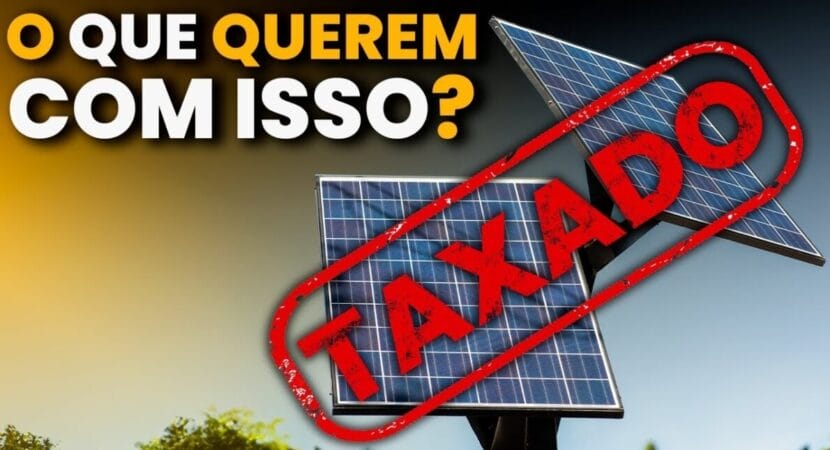
Can new PL 4831/2023 declare the end of solar energy? Understand how solar energy taxation will work with simple and practical examples and whether it is still worth investing in the segment.
Starting in 2024, the approval of PL 4831/2023 will introduce a new tax on solar energy, specifically a 30% increase in the Distribution System Usage Tariff (TUSD wire B). This adjustment will make the cost of electricity generated by solar panels significantly higher. This change has raised a series of questions and concerns among those interested in adopting photovoltaic systems in their homes or businesses. Faced with this scenario, many wonder: are we witnessing the beginning of the decline of solar energy as a viable alternative for generating clean and sustainable energy?
Understand how the taxation of solar energy PL 4831/2023 is determined
A Taxation of solar energy does not apply to the total amount of energy injected into the electrical grid, but under the electricity that is compensated in the company's electrical grid. The solar generation rate is calculated based on the Fio B Tariff, which represents the amount charged for transporting energy on the distribution network. This taxation of solar energy, PL 4831/2023, occurs gradually, starting at 15% for 2023, 30% in 2024, 45% in 2025, 60% in 2026, 75% in 2027 and so on.
Um customer without solar energy who consumes 500 kWh per month, using a fare of 0,62 cents as an example, you would spend an average of R$310 (500 multiplied by 0,62) without taking into account taxes and the public lighting fee. If this same customer installs a photovoltaic system in 2024, with the same consumption, they would pay R$34 in Fee (Fio B) and R$62 in availability costs.
The new solar energy taxation law states that the customer can choose between the greater monetary value of the two values. Since R$62 is greater than R$34, the customer will therefore not pay solar energy taxes in 2024.
What happens if the customer compensates more than they consume with the new PL 4831/2023?
If a customer who has a photovoltaic system consumes 500 kWh and injects 600 kWh into the grid, it will not be compensated, as it can only inject the maximum consumed, that is, in this case, 500 kWh. Injected energy is different from compensated energy and many people get confused in this part. In this way, it is based on the maximum energy consumed that the rate is calculated and not through what is injected into the network. In this example, a 100 kWh credit is generated that can be used in up to 60 months.
The PL 4831/2023 rate, which in this example is R$34, tends to grow over the years. Following this reasoning, only in 2026, when the rate reaches R$69, will this customer pay the Fio B tax. Therefore, even with larger systems this taxation will not bring the end of solar energy, as it will continue to be very viable.
Can solar energy panels become more expensive?
A measure that has caused fear in the sector and that could lead to the end of solar energy is the end of the reduction in the import tariff on assembled solar panels, since there is similar production in Brazil. The tariff change was approved by the government on December 12, 2023 and, for the Brazilian Electrical and Electronics Industry Association (Abinee), and this will benefit the national production of photovoltaic modules.
At the time, it was also determined to revoke 324 ex-tariffs for this product, out of a total of more than 900, which were exempt from import tax. According to the executive president of Abinee, Humberto Barbato, the initiative is intelligent and aims to give the country more capacity to add value to its natural resources, without impacting the consumer market, since the measure is gradual. Therefore, there is no need to worry about the end of solar energy.











